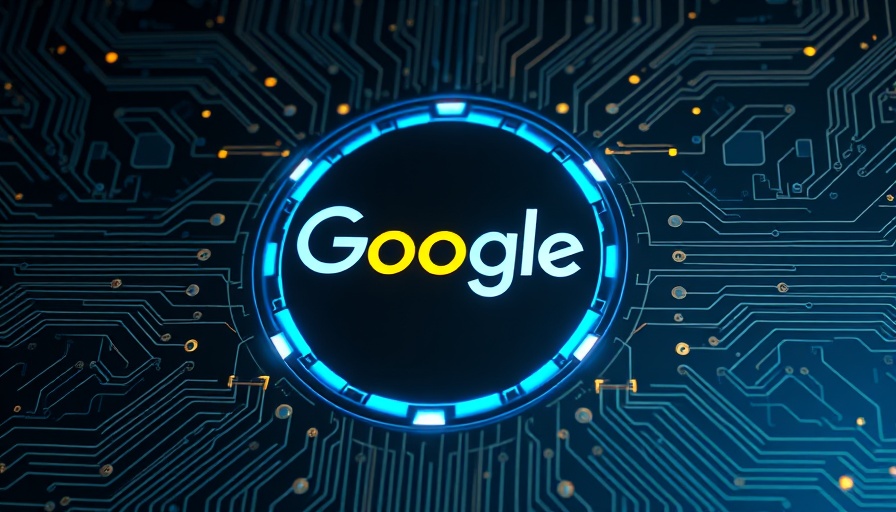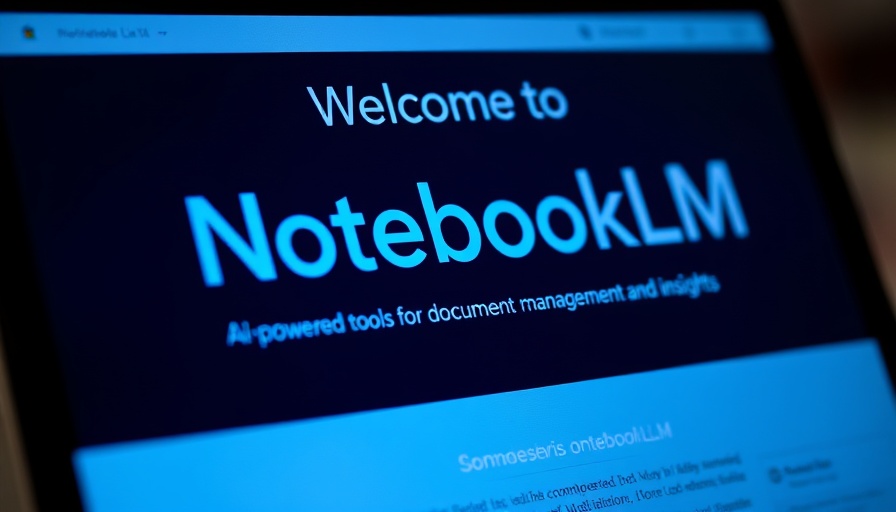
The Rising Tide of AI: A Catalyst for Unemployment?
In recent months, the intersection of artificial intelligence (AI) and employment has emerged as a hot-button issue. As companies rapidly adopt AI technologies, the implications for the job market are becoming profound. Anthropic's CEO Dario Amodei predicts that within five years, AI could lead to a staggering 20% unemployment rate, claiming it will outperform humans in nearly every intellectual task.
Understanding the Shift: AI's Capabilities and Job Market Dynamics
According to Amodei, AI applications are expanding beyond basic tasks and entering complex intellectual territories. His assertion that AI tools could displace up to half of entry-level white-collared jobs sends ripples of concern through the business and tech industries. Major tech players like Meta and Microsoft are already leveraging AI for tasks typically performed by humans, leaving many to ponder the future of employment.
With advanced models like Claude, capability in coding tasks and creative outputs is evolving. For instance, about 30% of Microsoft’s coding is said to be completed by AI, illustrating how these tools are altering traditional roles in the workforce. Furthermore, as AI models grow more efficient, the conversation has transitioned from augmentation of human labor to outright automation.
Broader Implications: A New Normal on the Job Front
The transition to an AI-dominated workforce raises pertinent questions about the nature of jobs in society. With AI technology progressing rapidly, the landscape of employment is likely to undergo a drastic transformation. Companies like Shopify and Duolingo have already begun utilizing AI for automation, a trend that reflects a larger wave of change.
Research shows that 60% of AI users currently employ these models for augmentative purposes while the remaining 40% use them for automation. However, the latter percentage is on the rise, capturing the attention of labor experts who warn of potential broad-scale job displacement.
Future Insights: Preparing for an AI-Driven Economy
The march of AI indicates that businesses need to adapt, fostering environments where human skills can complement AI rather than being replaced by it. The adoption of AI might seem daunting, but it could also lead to new job creation in fields we haven't yet imagined. Industry professionals must brace themselves for continuous learning and reskilling to thrive in an economy where AI technologies prevail.
Diverse Perspectives: Counterarguments and Optimistic Views
While Amodei's perspective sheds light on critical aspects of AI's impact on employment, it's essential to recognize opposing views. Some experts argue that AI may create new job categories, such as AI ethics and oversight roles, which are vital to ensure that AI systems complement human efforts responsibly. Moreover, the notion that AI will replace jobs raises moral and ethical questions about the future workforce and equitable access to new opportunities.
The reality is complex, and there will likely be both winners and losers in this transformation. Not all industries will experience the same level of disruption—service-oriented fields might adapt differently than tech-heavy sectors.
Taking Action: Navigating the AI Landscape
For industry leaders and professionals, the key to thriving amid this AI revolution lies in proactive measures. Organizations must prioritize investment in workforce development, ensuring that employees are equipped with necessary skills. Initiatives that foster collaboration between AI and human intelligence can unveil new, lucrative market opportunities.
Ultimately, the ongoing dialogue surrounding AI's potential impact on employment illustrates a need for thoughtful policymaking and organizational strategies. As we approach 2028, the conversation about AI's role in transforming the workforce is just beginning.
To remain competitive and relevant, CEOs, marketing managers, and business professionals must prepare for this inevitable shift. Embracing change and adapting strategies in anticipation of AI advancements will help mitigate unemployment and position organizations for success in an AI-driven economy.
 Add Row
Add Row  Add
Add 




 Add Row
Add Row  Add
Add 

Write A Comment